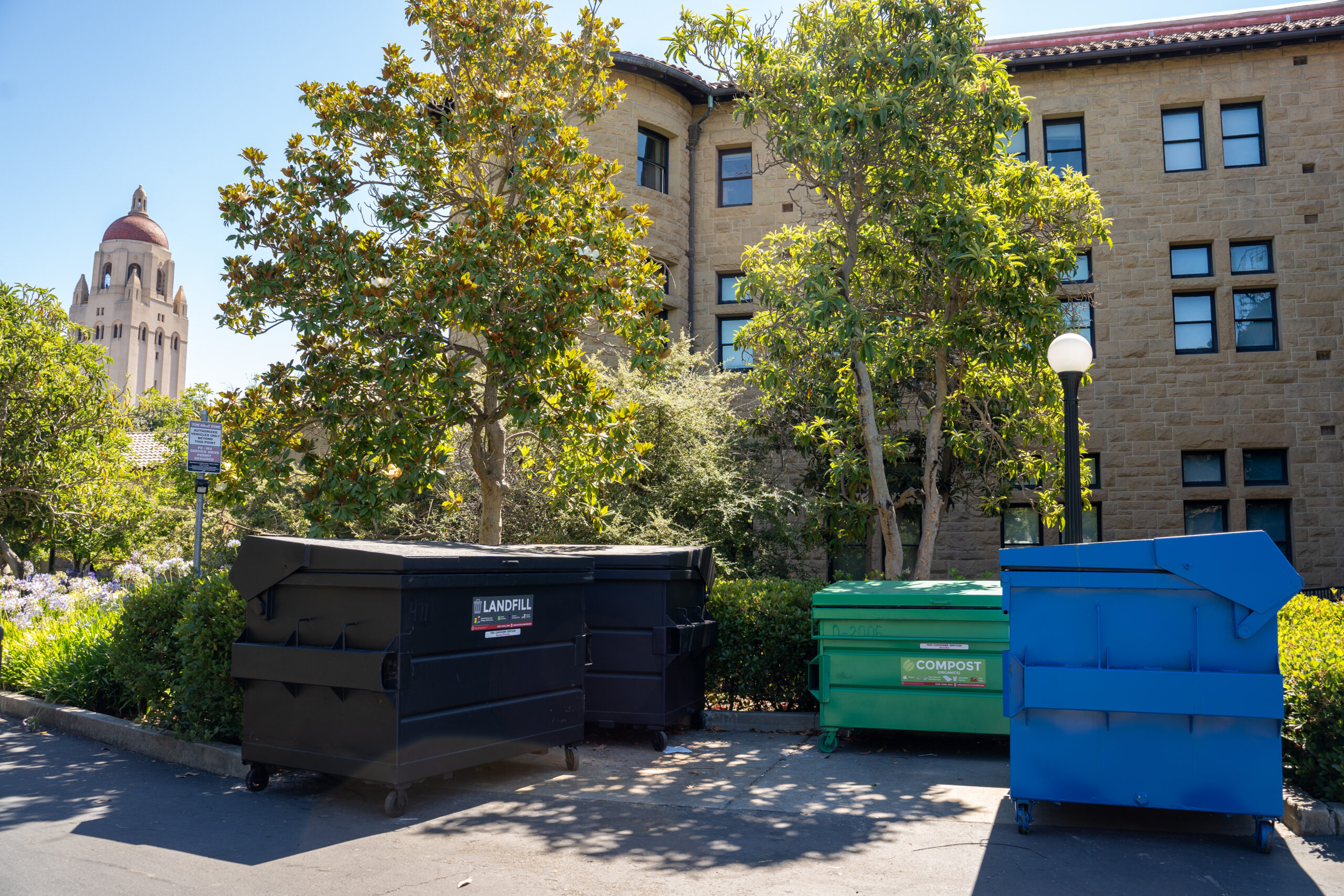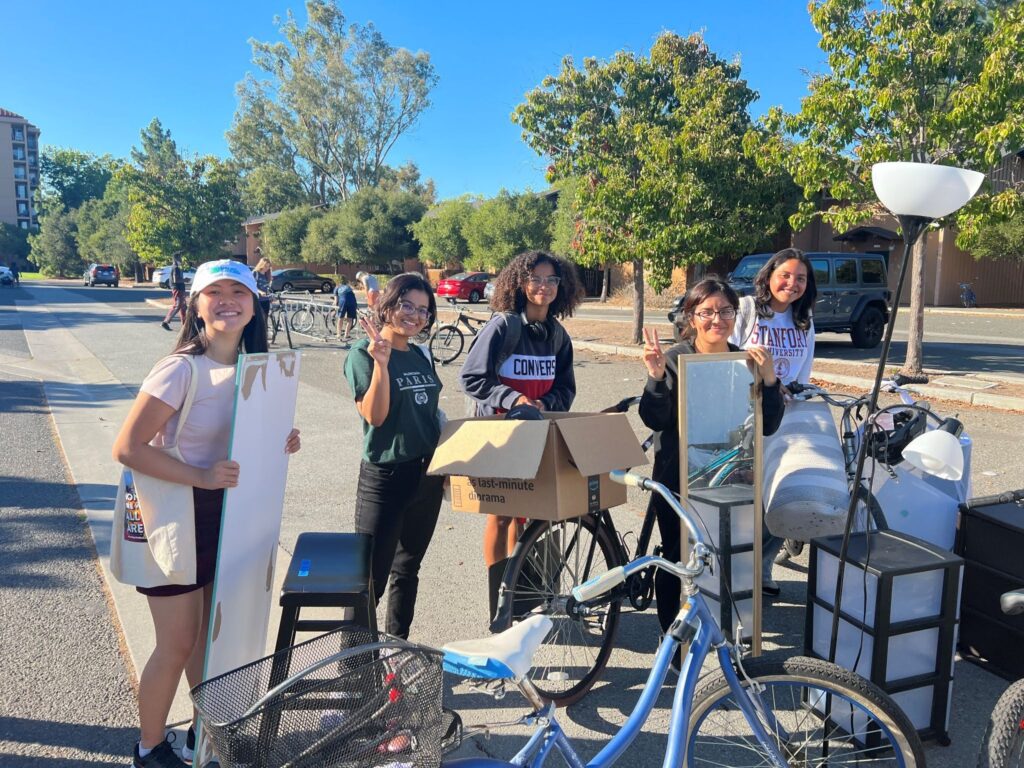
Waste Sorting 101
Learn how to responsibly dispose of your waste with quick and easy tips.
Stanford University has proudly attained a landfill diversion rate of 69% through its robust initiatives in reuse, recycling, and composting. By contracting directly with a third-party waste hauler, the university benefits from customized services, enhanced transparency, and efficient customer support in managing campus waste disposal. Through responsible purchasing practices and strategic sorting methods, Stanford’s waste system helps drive the university towards zero waste.

Stanford’s waste system starts with individuals. Everything purchased and brought to campus eventually needs to be responsibly managed to protect people and the environment. The less waste produced, the less that needs to be managed.

The Stanford community can access waste services for all their needs – whether residential, laboratory, construction, food, event, reuse and donation, or hazardous waste. Services are provided by family-owned Peninsula Sanitary Service, Inc. (PSSI) along with Stanford’s Environmental Health & Safety Department (EH&S).

Share and save with year-round and seasonal reuse and donation opportunities for furniture, office supplies, lab equipment, dorm accessories, clothing, and more.

Proper waste sorting is one of the simplest daily actions you can take to address climate change. Not sure what to do with your waste?

Get inspired by stories from students, staff, and faculty across campus who are taking action.

The Office of Sustainability invites you to be apart of the Zero Waste Campus Committee, where your ideas will help shape waste reduction initiatives at Stanford.


Learn how to responsibly dispose of your waste with quick and easy tips.
Explore what happens when waste leaves campus.

Tools to support lab personnel in reducing waste and managing waste responsibly.

Tools to support facilities and building managers to responsibly fill their role in Stanford’s sustainable community.